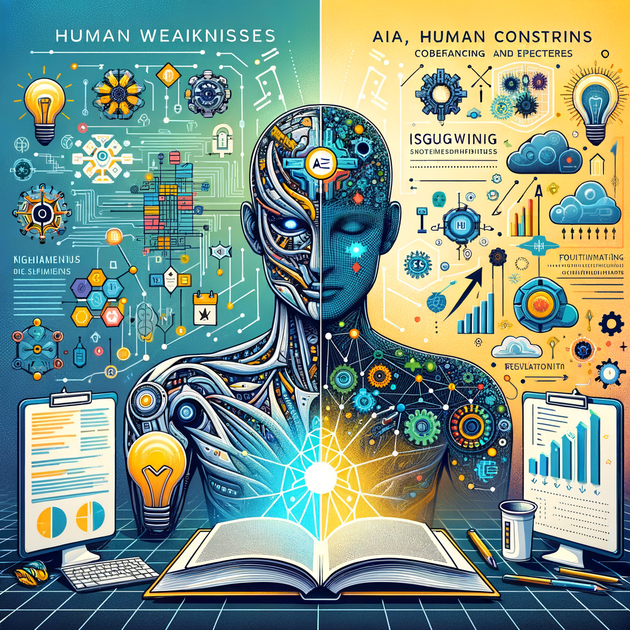How AI Can Tackle Human Shortcomings: Charting a Path to a Brighter Future

In the ever-evolving landscape of technological advancement, the discussion surrounding artificial intelligence (AI) versus human errors and limitations is more relevant than ever. Inspired by Horst Walther’s blog post, “Artificial Intelligence vs. Human Stupidity,” this article delves into how AI can counterbalance human shortcomings and lead us to a more prosperous future.
Human Challenges and AI’s Unmatched Potential
From climate change to geopolitical tensions and economic inequality, the world is grappling with challenges of unprecedented scale and complexity. While human intellect alone often falls short of devising sustainable solutions, AI, with its vast computational prowess and ability to analyze large datasets, holds promise for addressing these daunting issues.
The Role of AI in Reducing Human Error
One of the most significant advantages of AI is its capability to counteract human error. Whether it’s in daily decision-making or in response to global crises, AI’s objective and data-driven approach can reduce the impact of poor judgment and shortsighted policies.
Human stupidity—a term used candidly by Walther—manifests in various forms, from minor mistakes to catastrophic oversights. By leveraging AI’s analytical abilities, we can create systems that offer informed, unbiased insights, leading to more rational and effective decisions.
AI and the Future of Energy
One of the most revolutionary applications of AI lies in the realm of renewable energy. AI can optimize the extraction and use of geothermal energy, significantly enhancing efficiency and sustainability. This is just one example where AI’s predictive capabilities open new avenues for clean energy solutions.

From Artificial Intelligence to Artificial Wisdom
The concept of Artificial Wisdom (AW) is an intriguing one. While AI excels in processing information and executing tasks, AW could represent a future where AI systems not only perform actions but contextualize them with deep understanding and insight, akin to human wisdom.
Such a transformation would be monumental, allowing AI to contribute ethically and philosophically to solving global challenges, guiding humanity towards peaceful and prosperous outcomes.
Addressing Ethical Considerations
As we integrate AI more deeply into our problem-solving arsenal, ethical considerations must not be neglected. The potential for AI to perpetuate or even exacerbate existing inequalities is a real concern. Ensuring data privacy, minimizing bias, and developing robust AI governance frameworks are essential steps in navigating this complex landscape responsibly.
Envisioning a Symbiotic Future
Reflecting on the insights from Walther’s blog, we can envision a future where AI and human intellect work hand-in-hand to solve the multifaceted challenges we face. By harnessing AI’s capabilities responsibly and ethically, we can create a world that is not only more equitable and sustainable but also one that continuously evolves towards betterment.
What are your thoughts on the potential of AI to address human shortcomings? Share your insights and join the conversation on how we can shape a collaborative future for the betterment of all.
